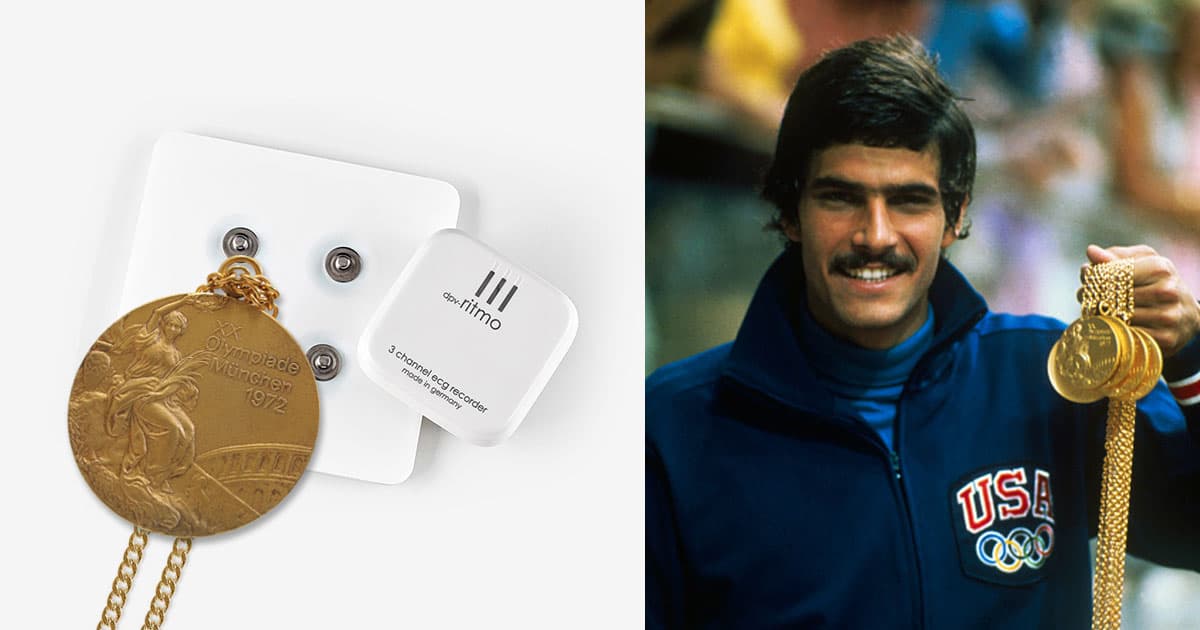Award-winning medical innovation from Germany helps detect the insidious condition faster
He is one of the most famous sports legends in the world: U.S. swimmer Mark Spitz won seven gold medals at the Munich Olympics 50 years ago. In an interview with “Bild am Sonntag” (dated September 4, 2022), he now spoke openly about suffering from atrial fibrillation. He had studied it intensively and also found out “that about 35 percent of all competitive athletes who stress their bodies with high intensity get it when they are over 60.”
Atrial fibrillation is a cardiac arrhythmia and is considered extremely treacherous: Most people don’t notice the condition at all – or only when it’s too late. One in four strokes in Germany is caused by atrial fibrillation, which means more than 70,000 strokes every year.
Mark Spitz has been lucky: His condition was detected in time, and it is also “under control with medication,” as he said in the interview. Atrial fibrillation can only be diagnosed with a long-term ECG. Today’s devices, however, require cumbersome wiring, which is very costly for doctors’ offices and very inconvenient for patients.
This is about to change: the Hamburg-based start-up dpv-analytics GmbH has developed a device that revolutionizes conventional long-term ECGs. The mini ECG “ritmo” is only 45 by 45 millimeters in size, does not require a cable, is easy to handle and comfortable to wear. It is simply stuck to the chest and records heart data for 72 hours. These are then analyzed by software and reviewed by a cardiologist.
Doctors and clinics can order the device from dpv-analytics, as can anyone who wants to take regular and uncomplicated active preventive heart care. “Many strokes could be prevented if people knew about heart disease in good time,” says dpv managing director Dr. Philip Nölling. With the mini-EKG ritmo, he says, “cardiovascular screenings can be carried out nationwide, and within a very short time: without referrals, without full waiting rooms and without long waiting times.”
The small device has already attracted a great deal of attention in specialist circles. It was awarded the “German Medical Award” in the “Medical Innovation Product” category at the end of last year: Every year, the coveted medical “Oscar” crowns outstanding achievements and innovations that enable better patient care. Last month, the “ritmo” also received the Gunnar Uldall Business Award: The jury called it a “highly innovative solution to simplify heart attack and stroke prophylaxis.”
